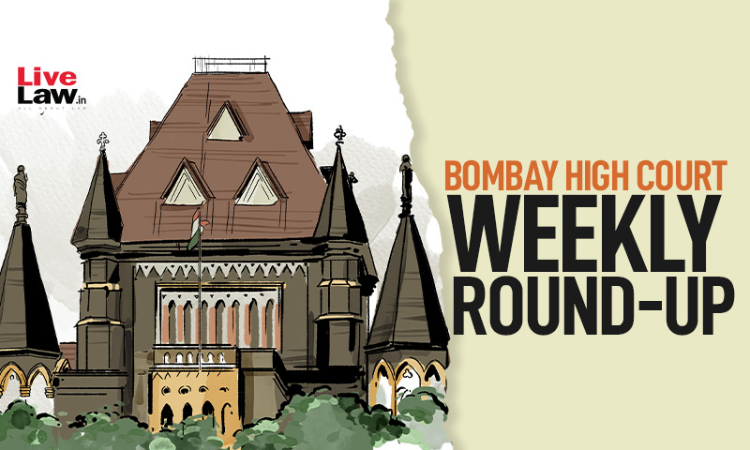Bombay High Court Weekly Round-Up: October 17 To October 23, 2022
Amisha Shrivastava
25 Oct 2022 12:25 PM IST

Next Story
25 Oct 2022 12:25 PM IST
Nominal Index [Citations 390 – 406] 1. Sunita Manohar Gajbhiye v. Union of India 2022 LiveLaw (Bom) 390 2. Yash and Ors. v. State of Maharashtra and Anr. 2022 LiveLaw (Bom) 391 3. Ashok Babarao Patil v. State of Maharashtra and Ors. 2022 LiveLaw (Bom) 392 4. ABC v. State of Maharashtra 2022 LiveLaw (Bom) 393 5. Jyoti Jagtap...
